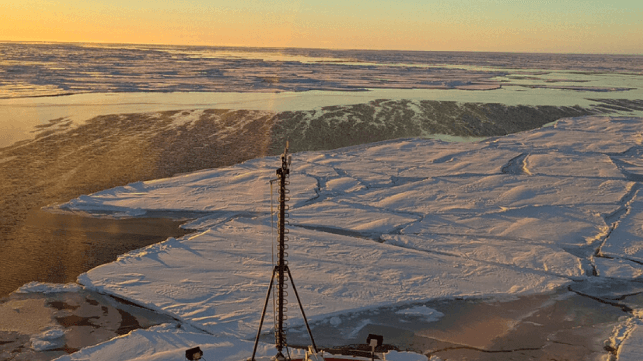NOAA: Arctic's Seven Warmest Years on Record are the Last Seven Years

This year, the National Oceanic and Atmospheric Administration's annual Arctic Report Card has serious warnings about the impact of climate change on northern latitudes. The Arctic's seven warmest years on record have all occurred in the last seven years, and the effects are getting harder to miss. Fires, shrinking ice cover, shorter winters and more rain are making the Arctic a visibly different place, particularly for the people who live there.
The Arctic is warming up between two and four times more quickly than the rest of the planet, putting it on the front lines as the climate changes. Rising water temperature is reducing sea ice extent, and ice cover was well below the long-term average in 2022. The reduced sea ice cover may be contributing to heavier rains over the Siberian Arctic, as open ocean can more easily transfer moisture to the atmosphere.
Warmer water is also undercutting the edges of glaciers on the coast of Greenland, contributing to the speedup of loss of ice. The Greenland Ice Sheet lost mass for the 25th year running in 2022, and in September, unprecedented late-season warming brought melting conditions to more than a third of the ice sheet - even the summit, some 10,000 feet above sea level.
"As seasons shift, climate-driven disturbances, such as wildfires, extreme weather, and unusual wildlife mortality events, become increasingly difficult to assess within the context of what has been previously considered normal," wrote the authors in a preamble to the report.

that matters most
Get the latest maritime news delivered to your inbox daily.
Loss of surface ice is also an opportunity for shipping, and NOAA reports that vessel traffic has increased markedly in the Arctic over the decade from 2009-2018. The unique MMSI count increased from about 1,300 in 2010 to more than 3,000 vessels in 2018 on a steady upward trend. The largest volume of vessel traffic and the largest gains were in the Norwegian Arctic EEZ.
Warming conditions in the Arctic affect the rest of the world in the form of changing weather and rising seas. There are also unexpected regional impacts, like the effects of changing Arctic currents on the New England lobster industry. Cold, nutrient-laden water from the Arctic percolates south with the Labrador Current and cools the coastal waters of New England and New Brunswick. But freshwater runoff from Greenland's melting ice is changing those currents, and today the water temperature in the Gulf of Maine is rising faster than the vast majority of the world's oceans. Lobsters do poorly in warmer conditions, and populations are relocating north to follow their optimum temperature, according to researchers with the University of Maine and Columbia Climate School.
